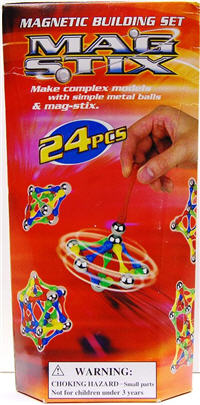Poorly constructed toys with strong magnets are the cause of another serious injury to a child. The 8 year-old swallowed two small magnets that had broken off of “Mag Stix” a magnetic toy manufactured in China. The magnets attracted inside her body, perforating her intestines and requiring surgery.
chinese poison train
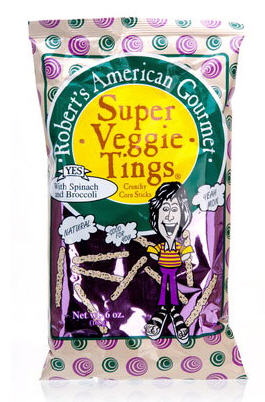
"Veggie Booty's" Salmonella Seasoning Contains Contaminated Ingredients From China
Robert’s American has “pinpointed” the source of the salmonella ingredients: China. According to the company, the seasoning for Veggie Booty and the recently-added-to-the-recall snack “Super Veggie Tings Crunchy Corn Sticks” is made from ingredients that are primarily imported from China.
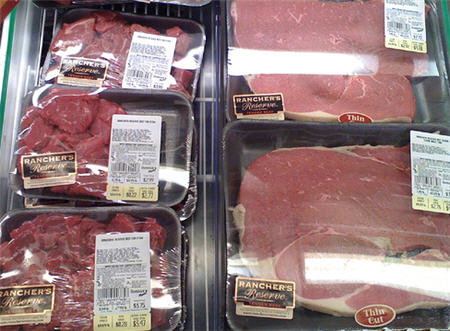
Food Labels Lack Country Of Origin Info Despite 5 Year Old Law
Unlike seafood, the meat, produce and nuts you buy don’t have a country of origin label, despite a 5 year old law that says they should, according to the New York Times. Lobbyists and congresspeople have managed to hold off enforcement of the law since it was passed in 2002, but now proponents of country of origin labels (COOL) think they may have enough momentum from the Chinese Poison Train to finally make the label a reality. From the NYT:
“No. 1, there’s a basic consumer right to know,” said Michael Hansen, senior scientist at Consumers Union, an advocacy group that publishes Consumer Reports magazine and supports the labeling law. “People are more and more concerned about the food they eat.”

U.S. Companies Start Testing, Screening Chinese Products
U.S. companies are developing new safety measures in response to the continued rumbling of the Chinese Poison Train. The measures, along with renewed federal interest in food safety, suggest that we may be in the midst of a food safety revolution similar to the one that reformed the meatpacking industry after the publication of Upton Sinclaire’s “The Jungle.”
For the companies, the problem is two-fold: figuring out exactly what to test for and maintaining control over their network of suppliers, even as they turn to China for vast quantities of imports at lower prices.
Three companies are trying three different strategies to cope with the uncertain quality of China’s exports:
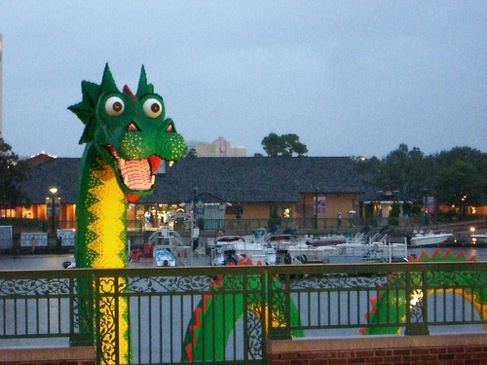
FDA Bans Import Of Chinese Seafood
The FDA is detaining all farm-raised catfish, basa, shrimp, dace, and eel from China over concerns that the fish may be on drugs. Tests since last October repeatedly revealed the presence nitrofuran, malachite green, and gentian violet – antibiotics that are not approved for human consumption in the United States. Though no general recall has been issued, the “FDA is concerned about long term exposure as well as the possible development of antibiotic resistance.” Chinese Commerce Ministry spokesman Wang Xinpei responded in classic form, saying:
../../../..//2007/06/29/consumer-reports-squarely-places-the/
Consumer Reports squarely places the blame for unsafe Chinese products on everyone.
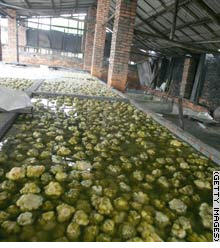
China Shuts Down 180 Factories Using Illegal Chemicals In Food
Formaldehyde, illegal dyes, and industrial wax were found being used to make candy, pickles, crackers and seafood, it said, citing Han Yi, an official with the General Administration of Quality Supervision, Inspection and Quarantine, which is responsible for food safety.

New York Times Reporter Detained By "Thomas The Tank Engine" Toy Factory
David Barboza, a New York Times business reporter based in China, stopped by the RC2 corporation’s factory in Dongguan, China to investigate the recent recall of 1.5 million wooden Thomas & Friends toys. He was confronted, accused of trespassing and detained for several hours. Eventually, the police recommended that he write out a confession.
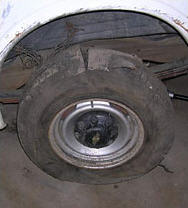
At Least 450,000 Imported Chinese Tires Missing Important Safety Feature
An importer of tires based in New Jersey is asking the National Highway Traffic Safety Administration for help recalling 450,000 imported light truck tires from China, according to CNN Money. The tires are the focus of a lawsuit involving a fatal crash “in which two construction workers were killed and a third was severely injured when a van rolled over,” according to the New York Times. The lawyer representing the lawsuit claims that the company only came forward after being named in the suit. From CNN Money:
The tires, made by Hangzhou Zhongce Rubber Co., have an insufficient or missing gum strip, a safety feature that helps prevent the tires from separating, the lawyers and a consumers’ group said in a statement. The group, Safety Research & Strategies, is urging retailers and wholesalers to stop selling the tires.
The importer says the tires were sold under the names Westlake, Telluride Compass and YKS.
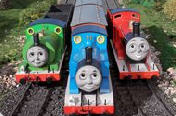
Thomas The Poisonous Tank Engine Recall Fallout Continues
Today’s New York Times has an interesting article about the process of assigning blame in the recent Thomas the Tank Engine recall debacle. Whose fault is it? The company that outsourced the manufacturing to China, RC2? The company that holds the rights to Thomas the Tank Engine, HIT Entertainment? Both? Neither?

Every Toy Recalled In The U.S. Shares The Same Label: Made In China
The New York Times is reporting that China is responsible for each and every one of the 24 toy recalls issued this year. Chinese manufactures supply up to 80% of the toys sold on the U.S. market. A new record was even set last year after the CPSC yanked 467 Chinese products off U.S. shelves.
China’s own government auditing agency reported last month that 20 percent of the toys made and sold in China had safety hazards such as small parts that could be swallowed or sharp edges that could cut a child, according to a report in China Daily. Officials in China, of course, are fighting back, insisting that its food and other exports are safe and valuable, that new regulations are being put into place and that problem goods account for a tiny portion of all exports.
We wonder if the office of some Chinese official has a framed fortune reading: You shall tell many lies today. Lucky Numbers: 24 80 467 20. — CAREY GREENBERG-BERGER
Chinese Poison Train Defeats FDA, The Prequel
Ten years ago, the FDA tried and failed to identify the driver of the deadly Chinese Poison Train. The investigation started when diethylene glycol produced by a state-owned company was mixed into fever medicine, killing 88 Haitian children.
The F.D.A.’s efforts to investigate the Haiti poisonings, documented in internal F.D.A. memorandums obtained by The New York Times, demonstrate not only the intransigence of Chinese officials, but also the same regulatory failings that allowed a virtually identical poisoning to occur 10 years later. The cases further illustrate what happens when nations fail to police the global pipeline of pharmaceutical ingredients.
The Chinese Poison Train hides behind a veil of secrecy and lies, after the jump…
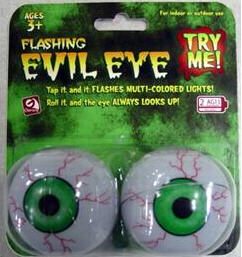
Recall Round-Up: The Toy Is Full Of Kerosene And Other Adventures
The jewel decorations on the shoes can detach, posing a choking hazard to young children. Units: About 1,800 Manufactured in: China
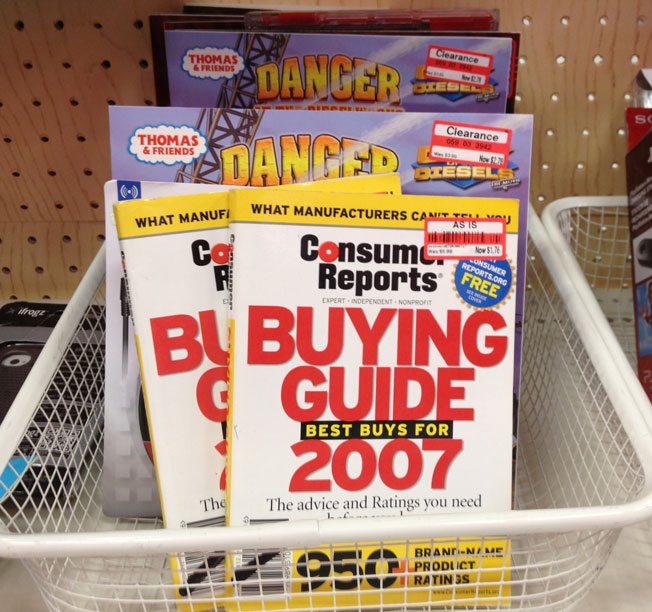
1.5 Million Thomas & Friends Toys Recalled Due To Lead Paint From China
Way to go, China! You’ve turned our “Chinese Poison Train” into something literal. Good job!

China Rejects, Destroys Unsafe Food From The United States
China has rejected and destroyed three shipments from the United States that failed to meet China’s notoriously strict food safety standards. China’s General Administration of Quality Supervision, Inspection and Quarantine (GAQSIQ) objected to the shipments, which contained bee pollen, health capsules, and Sun-Maid Golden Raisins:
“The products failed to meet the sanitary standards of China,” the agency said in a brief notice posted on its Web site. No details were given on when or how the inspections were conducted.
We will be so bold as to suggest that the State Department respond to Beijing with the following: Kettle, this is Pot. You’re black. — CAREY GREENBERG-BERGER

China: Consuming Low Levels Of Poison "Not Harmful"
China’s General Administration of Quality Supervision, Inspection and Quarantine thinks the FDA overreacted by advising consumers to discard all toothpaste made in China:
So far we have not received any report of death resulting from using the toothpaste. The U.S. handling (of this case) is neither scientific nor responsible.
The FDA issued its warning after seizing several shipments of Chinese toothpaste containing diethylene glycol, a poison used in paint and antifreeze. 100 Panamanians died last year after consuming cough syrup made with diethylene glycol. According to Chinese logic, poison in toothpaste isn’t as deadly as poison in cough syrup. Besides, wasn’t it Confucius who said: “That which does not kill us makes us stronger.” Either him or Nietzsche. We always confuse those two. — CAREY GREENBERG-BERGER

Today's Helpful Tip From The FDA: Throw Out Poisonous Chinese Toothpaste
Remember how the FDA said there was “no evidence” that Chinese toothpaste tainted with diethylene glycol had made it to the U.S.? That was wrong.
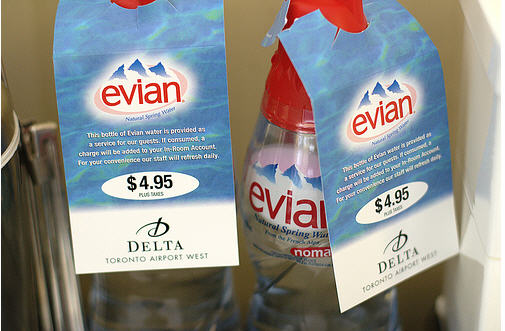
Evian Water Rejected By China For Containing "Excessive Amounts Of Bacteria"
118 tons of Evian mineral water has been seized and impounded by Chinese Health Inspectors because it contained “excessive amounts of bacteria.” China has a different standard for bacteria than the one set by the World Health Organization and Evian does not make the cut.


